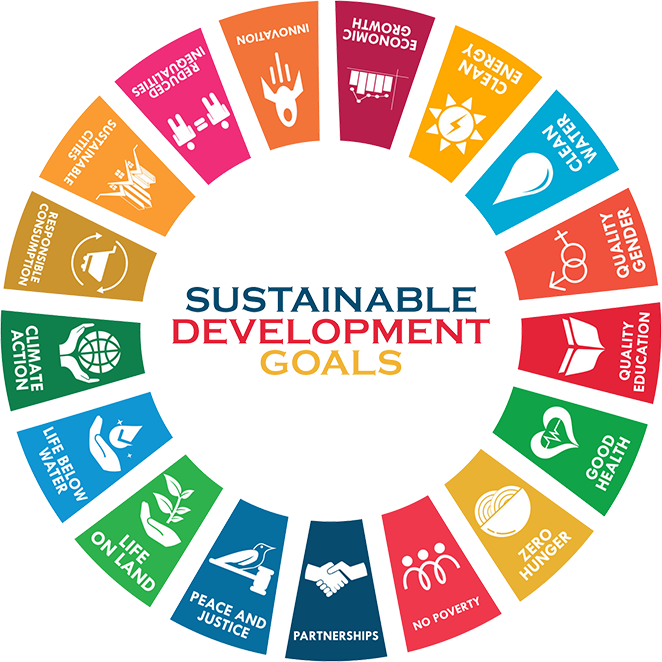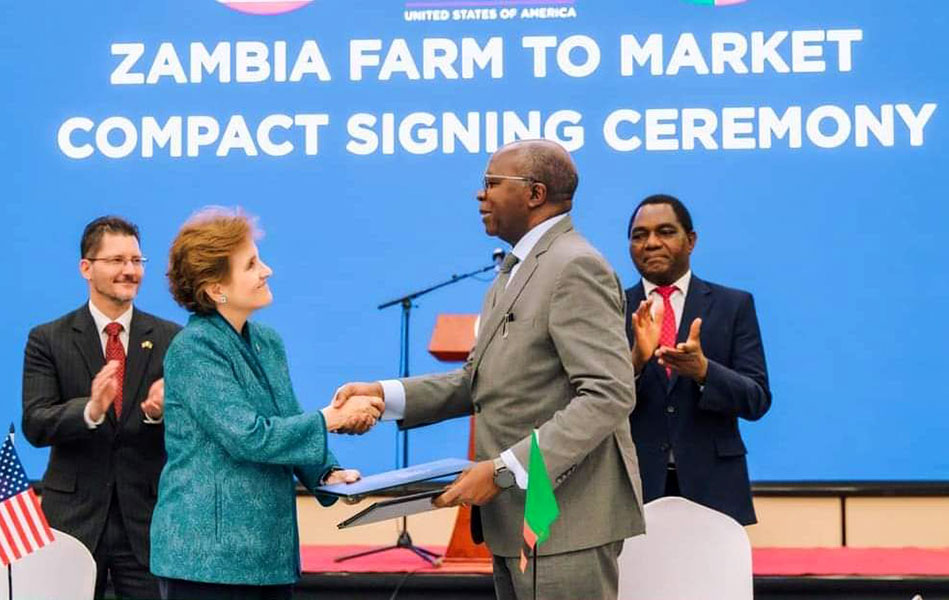The Government of the Republic of Zambia and the United States, through the Millennium Challenge Corporation (MCC), signed the US $491.75 million Zambia Farm-to-Market Compact, comprised of US$458 million from the American people and US$33.75 million given by the Zambian people.
This initiative aims to strengthen Zambia’s agriculture and agro-processing sectors by addressing critical challenges such as reducing transport costs for farmers, improving access to agricultural finance, and driving policy reforms to attract private investment.
During the signing ceremony, President of the Republic of Zambia, Mr Hakainde Hichilema said the signing of the second Millennium Challenge Compact signified yet another landmark in bilateral cooperation and friendly relations with the people and the Government of the United States of America.
“These bilateral relations have been built on a solid foundation of shared values and principles of democracy, good governance, respect for the rule of law, and the protection of freedoms and rights of citizens. “My Government will continue to uphold these principles, which provide a foundation for a thriving citizenry even as we celebrate 60 years of independence,” President Hichilema said.
And Millennium Challenge Corporation Chief Executive Officer Alice Albright said Zambia’s agricultural sector is vital for the country’s future.
“MCC is proud of its strong partnership with Zambia and our shared commitment to people-cantered development. By scaling efforts to help smallholder farmers access commercial markets and improve agricultural resilience, this Compact will promote inclusive economic growth in local communities and throughout the broader Zambian economy,” she said.
Approved by the MCC Board of Directors on September 18, 2024, the Compact will focus on improving road and access infrastructure in key agricultural corridors, lowering the cost of transporting goods to markets. It will also promote access to financing for critical investments, such as electricity, irrigation, logistics, and processing equipment, to help farmers and agro-processors increase productivity.
Additionally, the Compact will support infrastructure projects like mini-grids & cold-chain systems & policy reforms to attract greater private-sector involvement.
By supporting Zambia’s agriculture and agro-processing sectors, the Farm-to-Market Compact aligns with the government’s priorities of ensuring food and nutrition security, fostering economic growth, creating jobs, and increasing exports.




